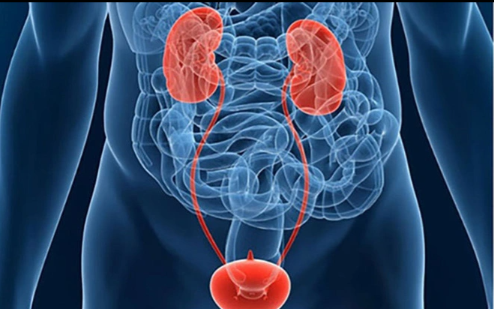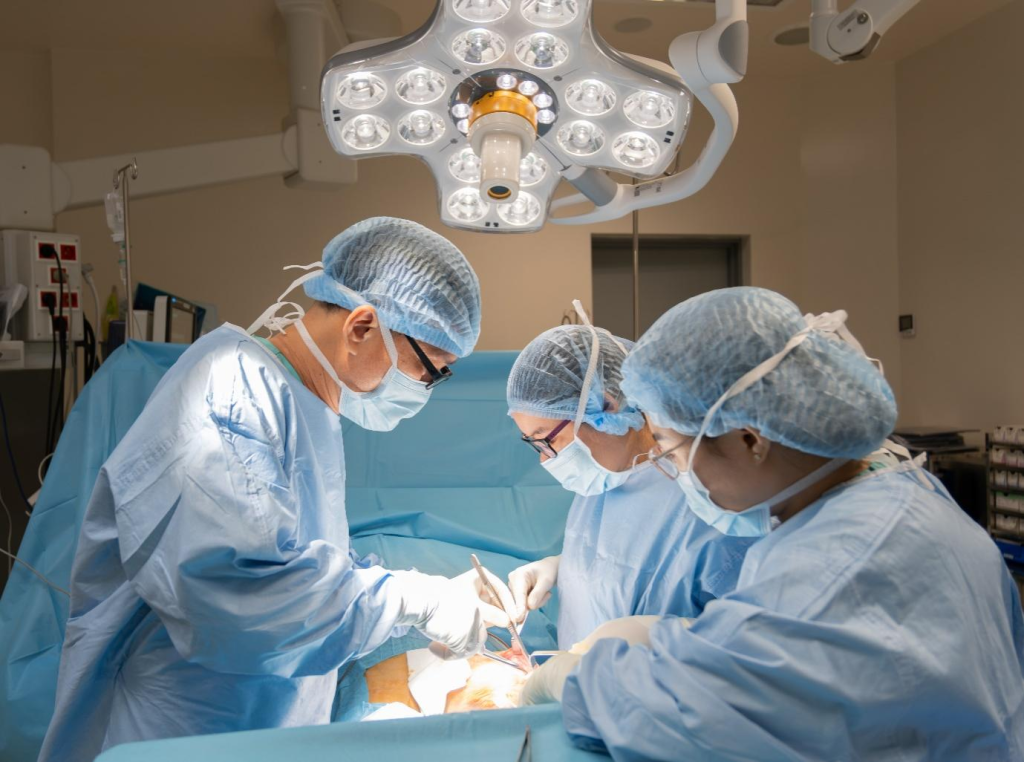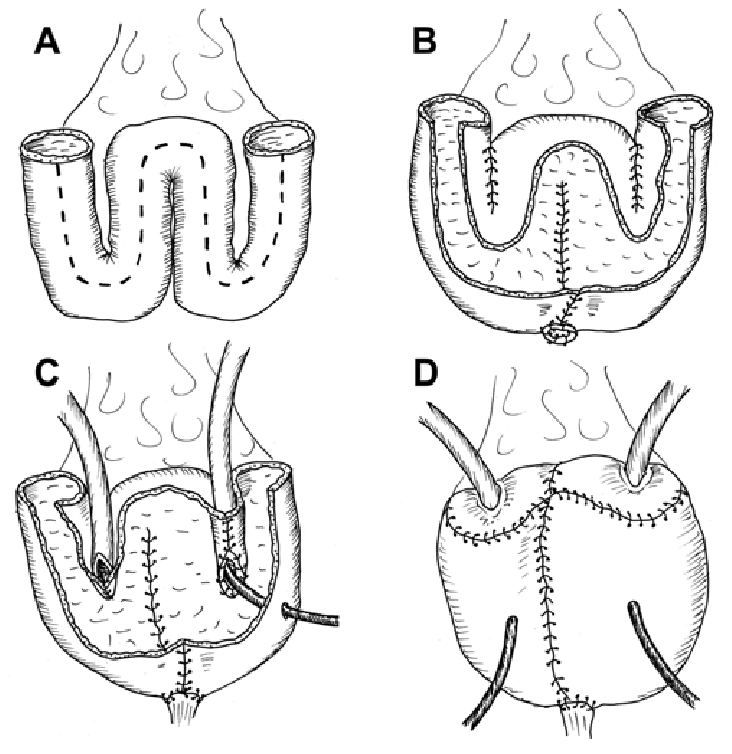Dr Do Quang Minh, Head of Urology & Andrology at FV Hospital, says that early-stage bladder cancer can be effectively treated with a high chance of survival. However, some individuals, due to fear of surgery or complacency, delay the diagnosis, making treatment more complex and challenging.
A 63-year-old man almost lost his life because he was afraid of bladder cancer surgery
Six years ago, Mr N.V.H (63 years old, from Dong Thap province) frequently noticed blood in his urine. After a medical examination, he was diagnosed with bladder cancer and recommended to have surgery. Fearing the surgery, he visited multiple hospitals in search of alternative treatments.
By September 2022, suffering from excruciating pain day and night, he sought treatment at FV Hospital. During the examination, Dr Do Quang Minh, Head of the Urology & Andrology Department, noticed that his condition had progressed to stage 3 and the tumour had invaded the urethra and the prostate gland. Without surgery, the tumour would continue to grow, causing blockages in both ureters resulting in urinary retention and immense pain and suffering for the patient.

After several months of hesitation, Mr H. finally decided to have treatment. He was assigned to undergo three cycles of chemotherapy at Hy Vong Cancer Care Centre. Subsequently, Dr Minh and his team performed the surgery to remove the bladder, performed lymph node dissection, removed all cancer cells, and created a urinary diversion to the abdominal wall using an ileal conduit.
After the surgery, Mr H.’s health stabilised. He was scheduled for follow-up appointments every three months.
“Patients who have successfully undergone treatment at stage 4 have a five-year survival rate of up to 70 per cent. If the treatment is administered earlier when the tumour has not invaded surrounding tissues and organs, perhaps Mr H. wouldn’t have needed to have his bladder removed, making treatment easier and improving his prognosis,” says Dr Minh.
“When patients discover they have the disease they should not hesitate to seek treatment.”
Creating a new bladder from the ileum for cancer patients
Bladder cancer often progresses silently and is usually detected during check-ups when patients show symptoms like blood in their urine. Dr Minh explains that surgery to remove the tumour is a curative treatment method for this disease. However, the fear of surgery has led many to delay care, only returning for surgery when the disease is more advanced and the tumour has invaded the bladder, causing urinary blockage and significant pain.

In many cases, the entire bladder has to be removed and reconstructed using a section of the intestine as a replacement. The intestine is cut along one side, rolled up, and stitched together to form a “pouch.” Subsequently, two tubes from the kidneys are connected to the new bladder, and the lower part of the new bladder is connected to the two tubes leading to the urethra. This allows the patient to urinate naturally.

“The new bladder must have three openings, so the risk of complications due to suture line leaks is very high. The complication rate is 37 per cent, and many cases require another surgery. Unfortunately, the mortality rate due to suture line leaks is high. The intricate reconstruction of a new bladder and high likelihood of dangerous complications is why very few surgeons pursue this surgery,” says Dr Minh.
A bladder cancer surgery can last for eight hours, and surgeons tend to lose alertness in the later stages of the procedure. Therefore, complications usually occur at the end of the surgery. With experience in performing hundreds of bladder cancer surgeries, Dr Do Quang Minh typically organises the surgical team’s tasks scientifically.
“Bladder cancer surgeries at FV typically involve the support of various specialties. Specifically, the segment of cutting and connecting the small intestine is carried out by the General Surgery team to ensure patient safety, while the lead surgeon conserves their energy for the most challenging part. Thus, bladder cancer surgeries at FV have never encountered complications,” explains Dr Minh.
Bladder Cancer: Early Treatment, High Success Rates
Bladder cancer is a malignant disease affecting the urinary organ and is three times more likely to occur in men than in women. Risk factors for this disease include smoking, exposure to harmful chemicals, and chronic bladder inflammation. When diagnosed early and treated promptly, the chances of recovery from bladder cancer are relatively high. This is why, when individuals notice symptoms like blood in their urine, they should undergo bladder screening through methods such as endoscopic biopsy.
According to Dr Minh, bladder cancer has four stages. In stage 1, the tumour is confined to the inner lining of the bladder and hasn’t invaded the muscular wall, making it relatively simple to treat with endoscopic surgery. In later stages, treatment becomes more challenging, and it might involve removing the bladder. In stage 4, the tumour might have spread to other organs.
Dr Minh advises patients to cooperate with their doctors for early treatment to avoid the disease progressing to more advanced stages, which can make treatment more difficult.

FV is a JCI-accredited multi-specialty hospital, staffed by highly trained physicians and equipped with modern facilities, that offers international healthcare standards. The treatment of bladder cancer at FV involves a multidisciplinary approach, combining the expertise of Urology & Andrology Department and Hy Vong Cancer Care Centre doctors, enhancing the chances of recovery and reducing the duration treatment.
Dr Do Quang Minh is a highly experienced specialist in urinary tract cancer treatment who has successfully treated more than 300 cases of bladder cancer. To learn more about bladder cancer treatment at FV Hospital, please contact at: (028) 54 11 33 33.

 Vi
Vi 












